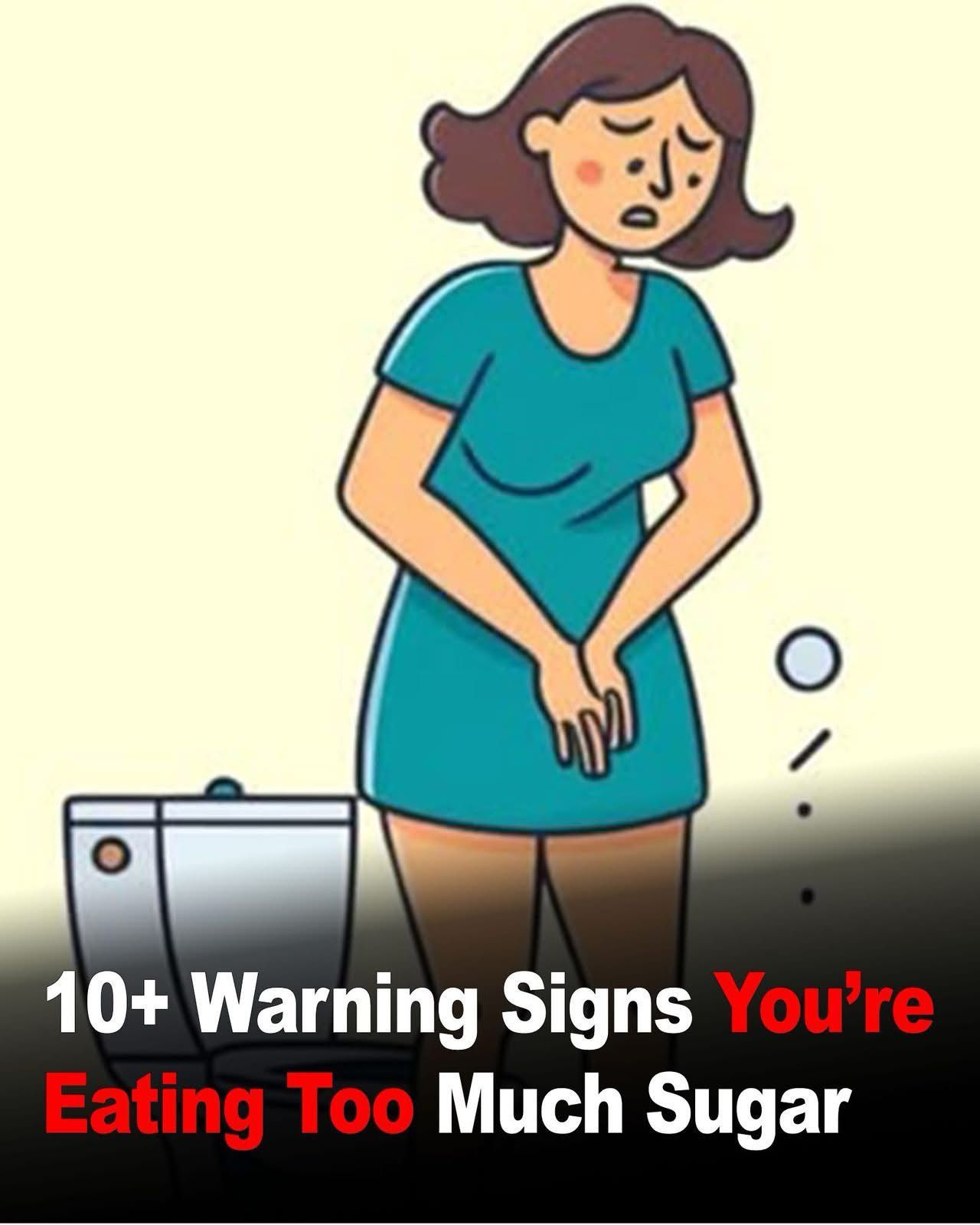🍬 10 Detailed Warning Signs You’re Eating Too Much Sugar

1. Constant Fatigue and Low Energy (Even After Sleeping)
Why it happens: Sugar gives you a quick burst of energy, known as a “sugar high,” followed by a sharp drop — the “crash.” This rollercoaster affects your blood glucose and leaves you feeling more tired than before.
What to look for:
- You feel drained a few hours after eating
- Napping feels necessary every day
- Your mornings feel sluggish even with enough sleep
2. Intense Sugar or Carbohydrate Cravings
Why it happens: Sugar activates dopamine (the feel-good brain chemical), creating a short-term reward. The more you eat it, the more your brain craves that reward, leading to addiction-like behavior.
What to look for:
- You crave dessert even after a full meal
- You can’t go a day without something sweet
- You “reward” yourself with sugar regularly
3. Weight Gain and Increased Belly Fat
Why it happens: Excess sugar, especially from fructose (in sodas, candies), turns into fat in your liver. It also interferes with leptin, the hormone that tells your brain you’re full.
What to look for:
- Weight gain around the abdomen
- Trouble losing weight despite exercise
- Constant hunger, especially at night
4. Skin Problems (Acne, Oiliness, Premature Aging)
Why it happens: High sugar intake causes inflammation, which aggravates skin conditions. Sugar can also affect collagen production, leading to early wrinkles and breakouts.
What to look for:
- Acne, especially on your cheeks and jawline
- Greasy skin, even with skincare routines
- Fine lines appearing earlier than expected
5. Mood Swings, Anxiety, or Feeling “On Edge”
Why it happens: Sugar spikes and drops in your blood glucose can affect mood-regulating neurotransmitters like serotonin. These sudden changes cause irritability and anxiety.
What to look for:
- Feeling cranky or impatient after meals
- Sudden drops in mood throughout the day
- Feeling anxious without clear reasons
6. Always Feeling Hungry
Why it happens: Sugar lacks protein, fiber, or healthy fats, so it doesn’t satisfy your body long-term. It also messes with ghrelin (hunger hormone) and leptin (fullness hormone), making you feel hungrier.
What to look for:
- Hunger soon after eating a full meal
- Constant snacking throughout the day
- Cravings shortly after drinking sugary drinks
7. Dental Problems: Cavities, Bad Breath
Why it happens: Sugar feeds harmful bacteria in your mouth, which then produce acids that erode enamel. The same bacteria also contribute to bad breath and gum disease.
What to look for:
- Tooth sensitivity
- Cavities or frequent dentist visits
- Sticky feeling in the mouth even after brushing
8. High Blood Pressure or Heart Palpitations
Why it happens: Diets high in sugar are linked to insulin resistance, which increases blood pressure. Sugar also increases triglyceride levels, stressing your heart.
What to look for:
- Diagnosed high blood pressure
- Racing heart after eating sweets
- Shortness of breath or dizziness occasionally
9. Restless Sleep or Insomnia
Why it happens: Sugar stimulates the nervous system and may raise cortisol levels (the stress hormone), especially when consumed late in the day.
What to look for:
- Trouble falling asleep or waking up frequently
- Feeling wide awake after dessert or a sweet drink at night
- Waking up groggy despite a full night’s sleep
10. Brain Fog or Difficulty Concentrating
Why it happens: High sugar intake reduces the brain’s ability to function optimally and may even impact memory and attention. Blood sugar spikes interfere with focus and clarity.
What to look for:
- Forgetting things you just read or heard
- Trouble focusing at work or school
- Feeling like your mind is “sluggish” or cloudy